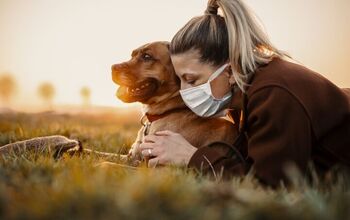6 Types of Bacteria That Can Make Your Dog Sick

Your dog’s body is equipped to handle germs and other pathogens, more so than the human body, in some ways. But that doesn’t mean that they are immune to disease. In fact, dogs are prone to a number of diseases, many of which are caused by bacteria.
Though bacterial infections are highly contagious (to other dogs and, in some cases, to people), they are usually easy to treat with antibiotics. Keep reading to learn about the six most common types of bacteria that can make your dog sick.
- Ehrlichia: This type of bacteria is frequently transmitted through fleas and ticks, and it causes a disease called Ehrlichiosis. This is one of the more serious flea- and tick-borne diseases and it can induce symptoms such as bruising, bleeding, limping, fever, lethargy, and enlarged lymph nodes. In some cases, symptoms don’t develop until months after the bite and the disease can be prevented with tick control products. Treatment usually involves antibiotics and, in some cases, immunosuppressant medications and/or blood transfusion. Ticks can also transmit this disease to humans.
Related: Understanding Lyme Disease Symptoms in Dogs
- Borrelia burgdorferi: These bacteria are transmitted through the bites of western and eastern black-legged ticks and it is responsible for causing Lyme disease. Lyme disease is most common in the American Midwest and Pacific Northwest and it can only be transmitted through a tick bite, not exposure to an infected dog. Symptoms include painful joints and swollen lymph nodes and the disease can be treated with antibiotics.
- Yersinia pestis: This type of bacteria was responsible for the plague that ravaged medieval Europe and it can still be found today. Infection by Yersinia pestis bacteria is typically spread by fleas that feed on small mammals such as rabbits, rats, mice, and squirrels. If a dog comes into contact with infected blood or tissue, it can contract the disease. With prompt diagnosis, this infection can be treated with antibiotics and supportive therapy.
Related: Leptospirosis in Dogs
- Bordetella bronchiseptica: These bacteria are responsible for the disease known as Bordetella, or Kennel Cough. It causes inflammation of the upper airway and, in severe cases, can even lead to pneumonia. This disease is highly contagious and symptoms may include coughing, nasal discharge, lethargy, eye discharge, and poor appetite. There is a vaccine for these bacteria and for some of the viral causes for Kennel Cough as well.
- Rickettsia rickettsia: This type of bacteria causes Rocky Mountain Spotted Fever and it is typically transmitted by tick bites. Symptoms usually develop in dogs within a few days or weeks of being bitten and may include lethargy, fever, joint and muscle pain, coughing, breathing problems, diarrhea, vomiting, bruising, bleeding, and enlarged lymph nodes. Antibiotics including doxycycline are usually effective and most dogs recover quickly with treatment.
- Leptospira: These bacteria cause a disease known as leptospirosis and it is usually spread through contact with the urine of an infected area or by contact with contaminated water. The bacteria can enter the dog’s bloodstream through small cuts and may lead to symptoms such as lethargy, fever, poor appetite, vomiting, joint and muscle pain, and bleeding or bruising. Treatment involves antibiotic medications and intravenous fluid therapy.
The problem with bacterial infections is that many of them present with similar symptoms and only your veterinarian can make an accurate diagnosis. It is also important to note that bacterial infections are much more treatable in the early stages, so keep an eye on your dog and report any changes in behavior that might indicate a health problem to your vet.

Kate Barrington is the loving owner of two cats (Bagel and Munchkin) and a noisy herd of guinea pigs. Having grown up with golden retrievers, Kate has a great deal of experience with dogs but labels herself a lover of all pets. Having received a Bachelor's degree in English, Kate has combined her love for pets and her passion for writing to create her own freelance writing business, specializing in the pet niche.
More by Kate Barrington























